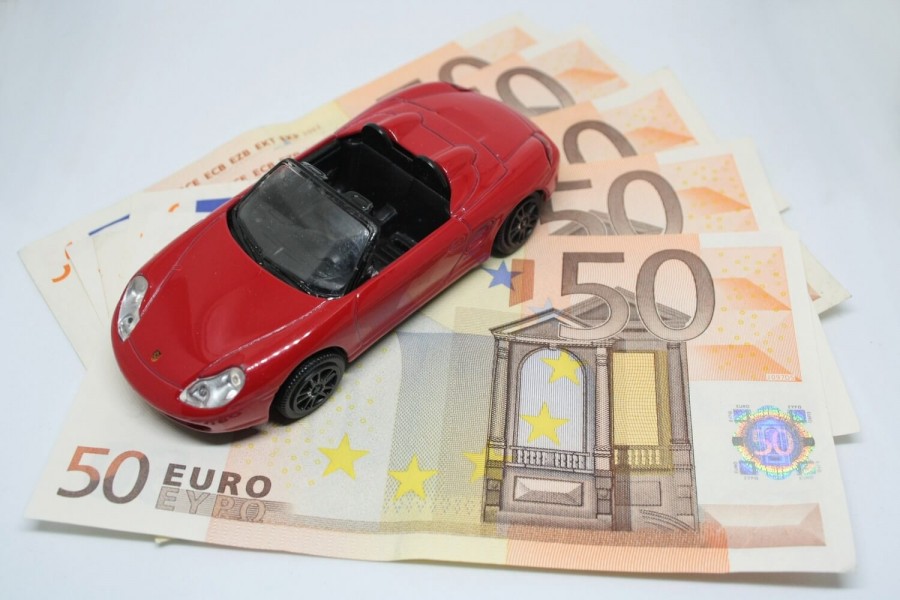What's the news?
A survey by tax refund specialist company Taxback.com has found that Irish people believe that drivers of older cars are being unfairly punished by the country's motor taxation policy.
A proportion of 83 per cent of 3,000 respondents think the Irish tax system should be overhauled in one way or another, as the current split - cars registered after July 2008 are taxed according to their CO2 emissions, and prior to this date they're taxed on the size of the engine - is inequitable.
The respondents to the Taxback.com survey were asked: 'Motor tax is charged on CO2 emissions on all cars manufactured after 2008. For cars manufactured before this date, it is based on the size of the engine. Which of the following best describes your view on this?'
And the responses to this query were as follows: fully 27 per cent said those buying a 2007 car should not have to pay up to three to four times more for road tax than someone who buys a similar new car; 25 per cent thought the tax system should be overhauled completely, scrapping the motor tax and increasing fuel tax so those who use their car pay more; 17 per cent think motor tax should be based on the cost of the car; and a further 15 per cent said the system should be changed, as CO2 is no longer the best measure of what's good for the environment.
Just 16 per cent said they thought the current tax system was perfectly fair.
Taxback.com further provided two examples of the inequality of the system. First, a 1.2-litre Volkswagen Polo registered on July 1, 2008, would cost a motorist €330 annually. But a diesel Polo, registered in 2011, would drop into Band A2, resulting in a €180 bill - a difference of €150 per annum.
Even worse, a 2008 BMW 525d with the 3.0-litre diesel engine would cost €570 per annum, but exactly the same model registered one year before would result in a €1,494 bill each year.
Anything else?
Barry Flanagan, the director of Taxback.com, said of the findings of the survey: "The survey indicates that the changes in the motor tax system introduced in July 2008, which differentiated a separate method of tax calculation for vehicles registered pre- and post-July 2008, has ruffled the feathers of quite a large proportion of the taxpaying population. The emissions-based motor tax bands might bring cost efficiencies for drivers of newer cars, but drivers who are just outside the cut-off point are perhaps understandably frustrated by having to pay up to three times more tax than for a model just a year or two older.
"It would appear from these simple examples [which we have provided] that, in effect, the current tax system rewards those with higher incomes, as they can afford post-2008 cars, and penalises lower income earners.
"And a quarter of respondents said that they believe motor tax should be scrapped completely in favour of tax increases on fuel, so those who use their car pay more. The merits of this are not altogether difficult to see. The situation as it stands means that a person who commutes by public transport during the week, only uses a car on weekends and clocks just 3,000km per year, pays the exact same amount of motor tax as a person with the same car, but who uses their car seven days a week covering huge distances, racking up 60,000km per year."
And, speaking of the people who wanted to maintain the tax status quo, Mr Flanagan added: "While 16 per cent of respondents said they were happy with the current taxation system, their reasoning could be down to the fact that perhaps they are newer car owners who are benefitting from reduced motor tax rates.
"In addition, the statistic might also reflect the growing importance of the issue of carbon emissions and climate change among the Irish public. Our national climate change commitments do require action, and action across Europe on this issue is increasingly being taken in the form of taxation measures and schemes to incentivise the ownership and use of lower carbon vehicles. Interestingly, Ireland dropped 28 places last year in the 2018 Climate Change Performance Index, to 49 out of 59 countries. So there does seem to be a need to balance environmental concerns, while ensuring that motor taxation policies are equitable and affordable for Irish motorists."

